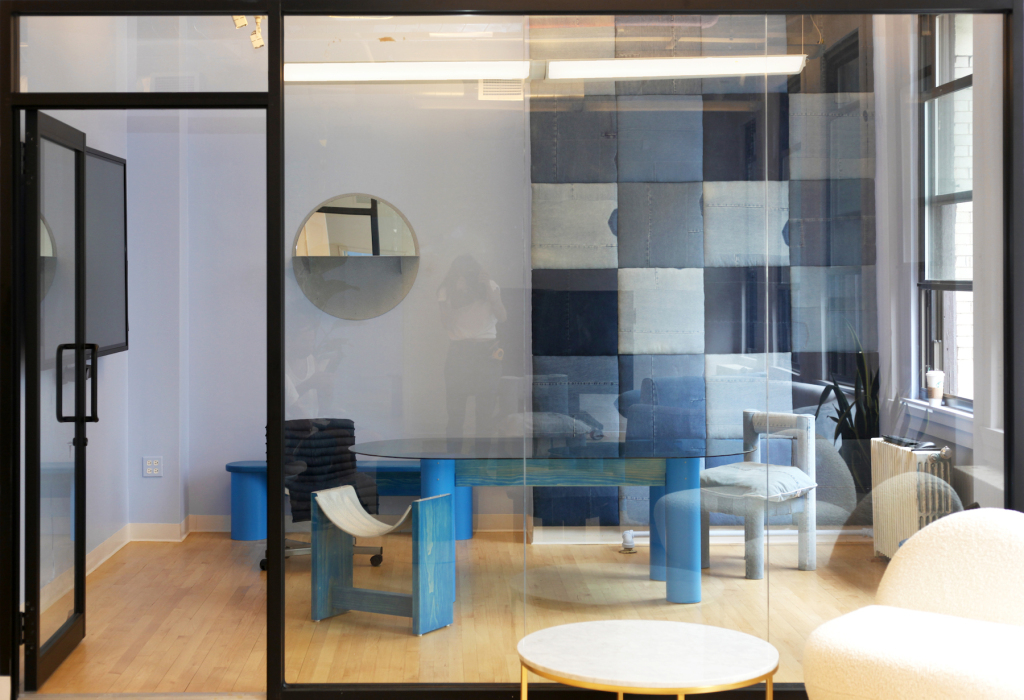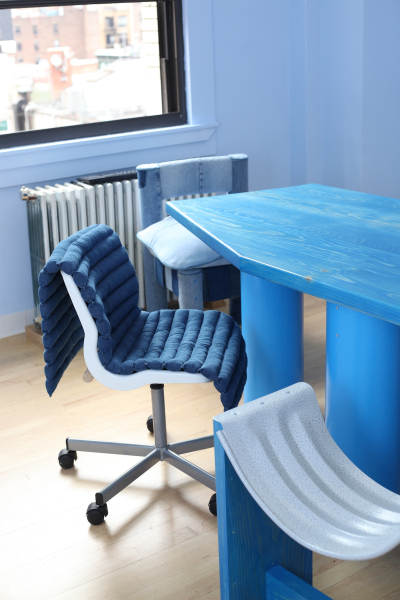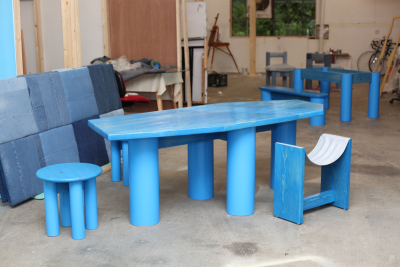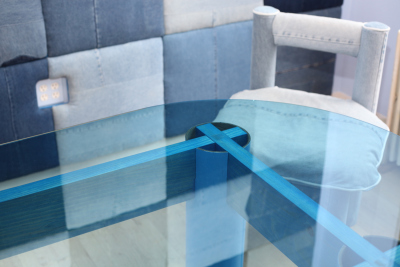 LikeMindedObjects
LikeMindedObjects
“The situation seemed to demand that we get creative and go rogue,” says artist and designer Elise McMahon, remembering what it felt like to graduate from art school at the peak of the 2007–2008 financial crisis. Skilled in woodworking and upholstering, she spent a few years cobbling together a living in the art-adjacent gig economy before starting her sustainable design studio, LikeMindedObjects, in Hudson, New York, in 2014 (a storefront followed in 2018).
LikeMindedObjects produces functional items mostly from repurposed materials like deadstock textiles, salvaged paper and glass, recycled wood pulp, and scrap car parts, whose histories, for McMahon, are part of their appeal. The studio’s pieces, which include mirrors with enameled frames in the shape of a man’s profile, turmeric-dyed pillows, and origamilike pleated lampshades, are undeniably stylish. At the same time, however, they ask, what manufacturing practices and materials will respect workers, communities, and environments?
Growing up in an artistic household (her father is a painter and her mother a sculptor), McMahon says, she was “always making up different product-based businesses: making and selling candles, even collecting pine cones and selling them by the bag to stores at holiday time—hilarious because it’s not all that far off from what I am up to these days.”
 LikeMindedObjects
LikeMindedObjects
“In museums as a child I wanted to touch everything—and often would when the guard wasn’t watching,” McMahon says, explaining why she chose to make objects that people could use, rather than become an artist. Her work has a surface playfulness, but it is grounded in McMahon’s research into global waste streams and the environmental impact of petroleum-based upholstery foam and fast fashion.
When the creative director of Blueland—a manufacturer of eco-friendly cleaning products—walked into McMahon’s storefront one morning in December 2019 and mentioned that the company needed an interior designer for its New York City offices, McMahon knew this would be an ideal project for her. A collaboration between LikeMindedObjects and Blueland, she felt, would allow her to think about producing at a larger scale without engaging in unsustainable or exploitative practices. She decided to pursue the opportunity.
As with most of her projects, McMahon first looked to resources near her in the Hudson Valley. She visited factories and recycling centers, finding bottleneck points where she could buy cast-off materials in bulk instead of piecemeal. Some compromises had to be made; specialized hardware for lamps and other pieces proved impossible to source outside traditional supply chains.
 LikeMindedObjects
LikeMindedObjects
By January 2020, McMahon was showing proposals to the Blueland staff. “They were very supportive of recycled materials being our primary building blocks and [of] the playful installation design, encouraging bold solutions.” Blueland accepted that some first-time production problems would need to be resolved along the way.
But a fast turnaround, for which McMahon had planned to hire a number of additional workers, was derailed by the pandemic. Instead the project became a solo endeavor, with McMahon designing and making much of the work alone until June. “Having a couple months to simmer in the goal and carefully source materials was enjoyable; it gave me a grounding purpose during such a shaky time.”
Batches of furniture came together over June and July, including two conference tables with sturdy legs made from reclaimed cardboard tubes, and a set of McMahon’s signature denim-upholstered chairs. Finally, in July, McMahon installed a denim sound-damping wall on site and delivered the furniture. For her, the best part of the project is getting to see Sarah Paiji Yoo, Blueland’s cofounder and CEO, take part in panel discussions in front of the patchworked denim. “It’s just what I hope for, for the lives lived in one of our interior installations.”
 LikeMindedObjects
LikeMindedObjects
Source link : https://www.artnews.com/art-news/artists/how-i-made-this-elise-mcmahon-likemindedobjects-1234602347












